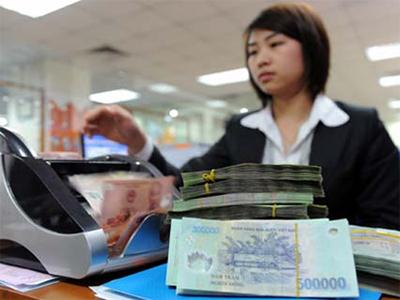Despite experts’ arguments, dong devaluation unlikely

illustration photo
At the recent Spring Economic Forum in north-east Quang Ninh province, economists voiced the need for the State Bank to revise the current dong-dollar exchange rate to support economic development.
Specifically, director of the Vietnam Economics Institute Tran Dinh Thien said the policy to keep the value of the dong high had overstayed its welcome.
He said it was one of the reasons Vietnam was having trouble developing supporting industries and was so reliant on input materials.
Former director of the Institute for World Economics and Politics Vo Dai Luoc said experts have argued that the dong is 10-25 per cent higher than its real value.
“With the dong set so high and the more we integrate into the global economy, it is easier for foreign players to exploit our resources,” Luoc added.
Based on these arguments, the experts proposed the State Bank of Vietnam (SBV) revise the exchange rate.
However, several other experts went the opposite direction, saying this was not the time to devaluate the local currency.
Director of the Bank for Investment and Development of Vietnam (BIDV)’s staff training centre Can Van Luc argued that it was unlikely the dong is set higher than real value.
“Even experts at foreign banks such as Citibank hold the opinion that the currency is not overvalued. Foreign speculators are very aware of business opportunities and would not have sat idly by if they thought the currency was overvalued, but they have taken no action,” Luc insisted.
Head of the SBV’s Monetary Policy Department Nguyen Thi Hong said that in early 2014 it had plans to adjust the dong-dollar exchange by 1-2 per cent within this year.
However, as of now the central bank has confirmed the rate will remain stable and will change by 1 per cent at most through year-end.
In fact, many countries such as China and Japan are allowing their currency to somewhat depreciate in an effort to stimulate exports in the face of plummeting tariff barriers.
Theoretically, if the dong was devalued it would help improve the trade balance, boost exports, and ease imports, but experts have argued that this theory may not work well in Vietnam where production relies heavily on import materials.
“Based on our studies, [dong-dollar] exchange rate adjustments have not had much impact on the country’s imports and exports over the past seven to eight years. In fact, when the rate was upped 10 per cent during 2010-2011, the country’s exports remained stable while imports jumped 30 per cent,” Luc said.
Many economists support the SBV’s current policy on exchange rate management given current conditions.
What the stars mean:
★ Poor ★ ★ Promising ★★★ Good ★★★★ Very good ★★★★★ Exceptional
Latest News
More News
- Cashless payments hit 28 times GDP in 2025 (February 04, 2026 | 18:09)
- SSIAM and DBJ launch Japan Vietnam Capital Fund (February 04, 2026 | 15:57)
- Banks target stronger profits, credit growth in 2026 (February 04, 2026 | 15:43)
- Vietnam on path to investment-grade rating (February 03, 2026 | 13:07)
- Consumer finance sector posts sharp profit growth (February 03, 2026 | 13:05)
- Insurance market building the next chapter of protection (February 02, 2026 | 11:16)
- NAB Innovation Centre underscores Vietnam’s appeal for tech investment (January 30, 2026 | 11:16)
- Vietnam strengthens public debt management with World Bank and IMF (January 30, 2026 | 11:00)
- Corporate bond market poised for stronger growth cycle (January 28, 2026 | 17:13)
- Vietnam's IPO market on recovery trajectory (January 28, 2026 | 17:04)
















 Mobile Version
Mobile Version